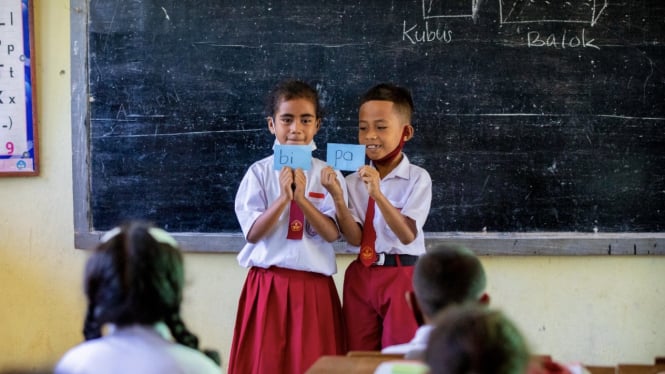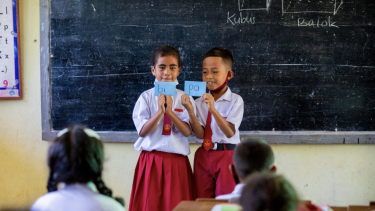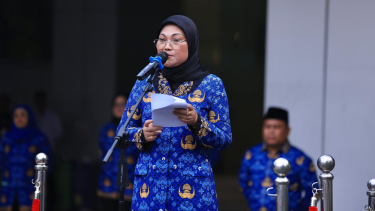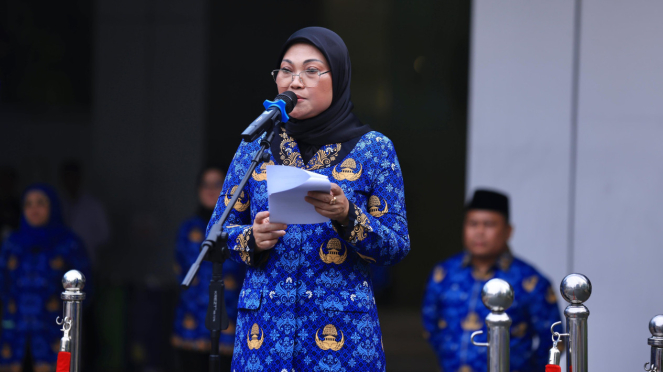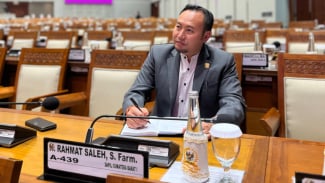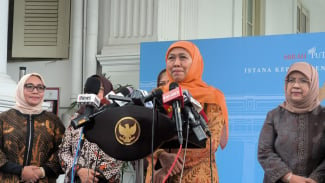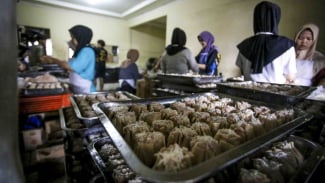Manpower Ministry Released Roadmap Towards Children Labour-free Phase Two
- Istimewa
Jakarta – In celebration of National Children's Day 2024 on July 23, 2024, the government is making various efforts to enhance the welfare and protection of children in Indonesia.
The Manpower Ministry has called on parents, the central government, local governments, businesses, and labor unions to collaborate and innovate in order to eliminate child labor practices in Indonesia.
Minister of Manpower Ida Fauziyah made this appeal during the launch event of the Extended Roadmap to a Child Labor-Free Indonesia (Phase II), following the completion of the Roadmap to a Child Labor-Free Indonesia 2022 (Phase I).
Menteri Ketenagakerjaan, Ida Fauziyah
- Kemnaker
Through this roadmap initiative, it is hoped that all parties can synergize to create a safer and more suitable working environment for children and support their optimal growth and development.
"During the celebration of National Children's Day, let us give the best gift to Indonesian children by committing together through this extended roadmap," the Minister said in a statement on Monday (July 22).
According to data from the Central Statistics Agency (BPS) in 2023, there are approximately 1.01 million child workers aged between 5 and 17 years in Indonesia.
This figure is relatively unchanged from the number of child workers recorded in 2022, which was also around 1.01 million.
Thus, there has been no significant change in the number of child workers from 2022 to 2023, indicating that this figure tends to be stagnant or not growing.
"This number is not small, so it requires a collective commitment to address this issue," Minister Fauziyah remarked.
There are several reasons why child labor persists in Indonesia, with poverty often being the primary cause.
Many children are forced to work to help meet their family's economic needs, especially when their parents do not have adequate employment to support daily living.
Additionally, low levels of parental education contribute to the problem, as they tend to prioritize immediate income over their children's education.
This issue is exacerbated by the lack of access to quality education, making children feel that working is more important than attending school.
Minister Fauziyah stated that there is a continuous commitment from her ministry to always strive to address the issue of child labor.
This is done to achieve the vision of Golden Indonesia 2045, which is a long-term development target.
As a concrete example of these efforts, Manpower Ministry has successfully withdrawn 143,456 children from workplaces between 2008 and 2020. It continues to work towards eliminating child labor practices in Indonesia.
One way is by increasing awareness among businesses and the public about the Worst Forms of Child Labor (WFCL) through socialization.
"This Extended Roadmap is expected to contribute to the achievement of Golden Indonesia 2045 by gradually reducing the number of child workers, ultimately reaching an Indonesia free from child labor, especially in WFCL situations," she concluded.
